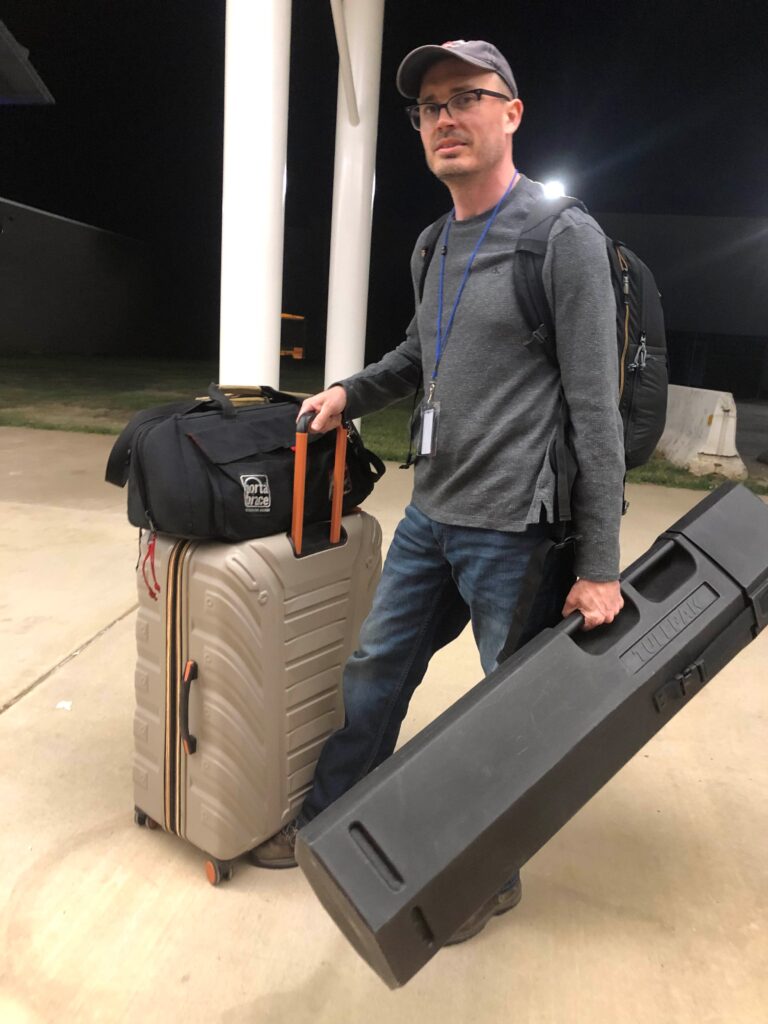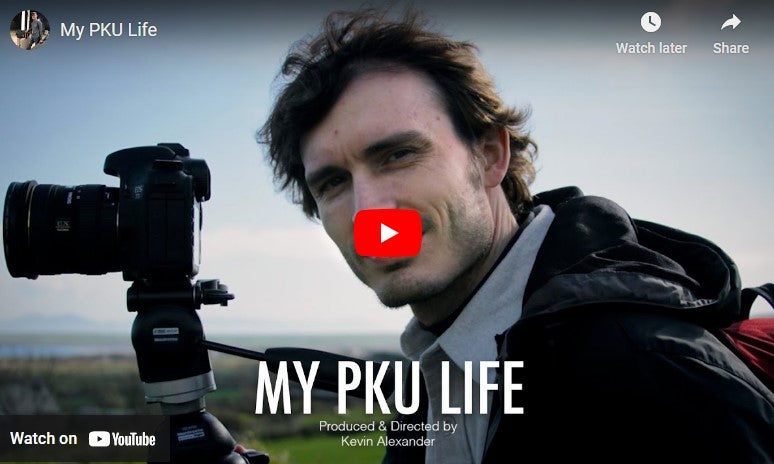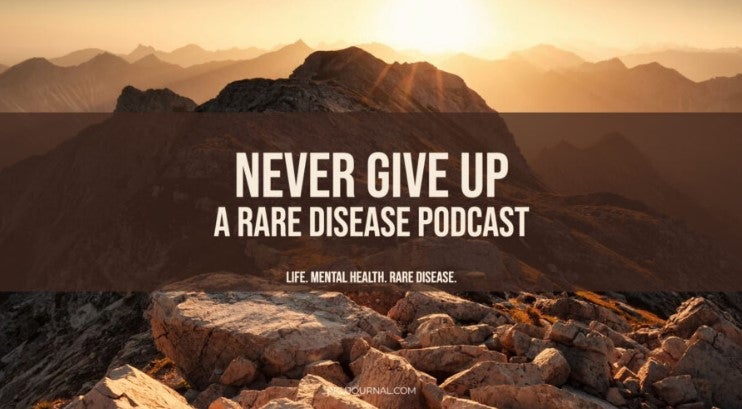Kevin Alexander lives with phenylketonuria (PKU) and has been an advocate for PKU, newborn screening, and rare disease awareness for over a decade. He’s Vice President of the Louisiana Metabolic Disorders Coalition, a volunteer for the National PKU Alliance, and a member of the International Society for Neonatal Screening. Kevin started by producing the video “My PKU Life” and has since traveled around the world speaking about life with this rare disease and producing other videos about PKU. The following article was contributed to the PTC Newsroom to help spread awareness about PKU. Check out Kevin’s blog, “PKU Journal,” and his podcast, “Never Give Up: A Rare Disease Podcast.“
Do you have a rare disease story to share? Contact our news team at shareyourstory@ptcbio.com.

I’m a storyteller.
While it’s been my profession for more than 20 years, it runs much deeper than that. Because, in essence, we are all storytellers. Telling stories is essential to the human experience.
But since I have a rare disease, there’s one story I’ve been telling for as long as I can remember. It’s my story of living with phenylketonuria, or PKU.
Anytime I share a meal with someone for the first time I tell a brief version of this story—just enough to explain why I have a special medical diet. But for most of my life I have told just enough of this story to make it through awkward social encounters unscathed. After a while, telling this story can become monotonous. Because it will never change—I have this rare disease for life.
Anyone with PKU, or any other rare disease for that matter, knows what it feels like to feel different, to stand out, to be a bit of an outcast.
But that was when I didn’t truly accept my rare disease life. I still wanted to be like others and not stand out every time I shared a meal. That began to change in 2011 when I started to tell my story in a different way. Until then, when I spoke about PKU, it was almost an apology—as if there was something wrong with me and I had to defend myself. Anyone with PKU, or any other rare disease for that matter, knows what it feels like to feel different, to stand out, to be a bit of an outcast. Until 2011, I wasn’t comfortable with my rare disease life. That’s the year I produced a short documentary called “My PKU Life.”

I began to own my story, and life changed.
I spent about a decade behind a TV camera, both as a TV photojournalist and then a corporate videographer. But I had never been on the other side of the camera. All that changed when I opened up and shared about my life with PKU.
As invitations to speak at PKU events around the world came in, I began to accept my rare disease story. Over the years I’ve been to events in Finland, Brazil, Australia, Germany, the UK, and all around the U.S. I’ve produced more videos about PKU, and I’ve continued to share my story.
Along the way I’ve learned that as we go through different seasons in life our perception of our story changes. I’m obviously not the same person I was when I was a child, a teenager, or even a young adult. But I’m also not the same person I was when I first engaged in PKU advocacy after producing “My PKU Life.”
I’ve been all over the world; I’ve met thousands in our PKU community; and I’ve seen how people navigate this rare disease life in their own way.
There’s no manual for the rare disease life. We are all figuring this out on our own. Everyone copes differently. We are scattered across the world. We come from all cultural backgrounds and beliefs. And we see the world differently. We are united in the rare disease experience and in our need for hope. That is our common story, part of our shared humanity.
As I’ve traveled and observed, my perception of my story has evolved. When you tell stories for a living, you meet many, many people. You take their story, reflect on it, and make it part of your own experience. And then, once you’ve done your job, you carry those people and those experiences with you forever.
That’s true of the countless people I encountered and stories I covered during my TV news career. And it’s true of the thousands of people I’ve met during my work in PKU advocacy. I carry these people and stories with me and will for the rest of my life. And it has changed me. It changed how I view life, how I value people, and how I love and serve my community. It changed my priorities—my priorities in life, in my career, and in my PKU advocacy.

And so now, a decade or so into my advocacy work, I’m in a different place in life. My story has evolved, along with how I tell it. These days I host a storytelling podcast. It’s called Never Give Up: A Rare Disease Podcast, and I explore life, mental health, and rare disease. I’m reflecting on those aspects of rare disease life that are universal—no matter which rare disease affects us. The rare disease life can be a burden, and it can be isolating. But we are not alone. Our rare diseases might be different, our daily experiences diverse, but we are united in our need for hope.
There’s a quote from the podcast that I’ll share with you as it’s something I’ve learned along my journey:
“When we share our experiences with others it helps us feel like we aren’t alone. And those who hear our stories feel like they aren’t alone.”
Accepting and owning your rare disease story can change your life. But when you open up and share that story with the world it can change someone else’s life. You never know who will listen and how your voice can change the world.